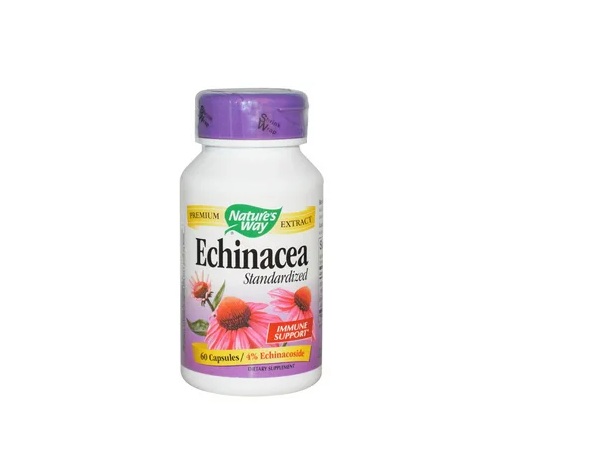Echinacea supplements have gained significant popularity in recent years, touted for their potential to support immune health and overall well-being. Derived from the Echinacea plant, particularly Echinacea purpurea and Echinacea angustifolia species, these supplements offer a natural approach to enhancing the body’s defenses against infections and promoting resilience to common ailments. In this comprehensive guide, we’ll delve into the various benefits of echinacea supplements, exploring their historical uses, chemical composition, mechanisms of action, and practical considerations for usage.
Understanding Echinacea: A Traditional Herbal Remedy
Echinacea, commonly known as purple coneflower, is indigenous to North America, where it has been used for centuries by Native American tribes for its medicinal properties. Historically, echinacea was employed to treat various ailments, including infections, wounds, and snakebites. The plant’s robust purple flowers and prickly stems characterize its distinctive appearance. Echinacea supplements are typically derived from the roots, leaves, and flowers of the plant, each offering unique therapeutic benefits.
Phytochemical Composition of Echinacea
The efficacy of echinacea supplements stems from its rich phytochemical profile, which includes alkamides, caffeic acid derivatives (such as echinacoside and cichoric acid), polysaccharides, flavonoids, and essential oils. These bioactive compounds exert immunomodulatory, anti-inflammatory, antioxidant, and antimicrobial effects, collectively contributing to echinacea’s therapeutic properties. Alkamides, in particular, are believed to stimulate immune function, while cichoric acid exhibits antiviral activity.
Health Benefits of Echinacea Supplements
Immune Support:
Echinacea supplements are revered for their ability to bolster the immune system and fend off infections. By enhancing the activity of immune cells such as macrophages and T-cells, echinacea helps the body mount a robust defense against pathogens, reducing the risk of respiratory infections, colds, and flu. Regular supplementation with echinacea may lead to shorter illness duration and milder symptoms.
Anti-Inflammatory Properties
Chronic inflammation is linked to various health issues, including autoimmune disorders and cardiovascular diseases. Echinacea’s anti-inflammatory effects can help mitigate inflammation by inhibiting pro-inflammatory cytokines and enzymes. This makes echinacea supplements beneficial for individuals with inflammatory conditions such as arthritis, allergies, and skin disorders.
Antioxidant Protection
Echinacea is rich in antioxidants, compounds that neutralize free radicals and protect cells from oxidative damage. By scavenging reactive oxygen species (ROS), echinacea helps reduce oxidative stress and lower the risk of chronic diseases, including cancer, diabetes, and neurodegenerative disorders. Flavonoids, in particular, contribute to echinacea’s antioxidant activity.
Respiratory Health Support
Echinacea supplements play a crucial role in supporting respiratory health, especially during cold and flu season. The herb’s immune-boosting and anti-inflammatory properties can alleviate symptoms of respiratory infections, such as cough, congestion, and sore throat. Echinacea may also help prevent secondary respiratory complications and expedite recovery.
Wound Healing Assistance
Topical application of echinacea supplements may aid in wound healing and skin regeneration. Echinacea’s antimicrobial properties help prevent infections, while its anti-inflammatory effects reduce swelling and promote tissue repair. This makes echinacea beneficial for treating minor cuts, abrasions, and insect bites.
Stress Management
Echinacea’s adaptogenic properties enable it to help the body adapt to stress and maintain equilibrium. Regular supplementation with echinacea may reduce stress-related symptoms, enhance resilience, and promote mental well-being. This makes echinacea supplements a valuable addition to stress management protocols.
Dental Health Promotion
Emerging research suggests that echinacea supplements may benefit oral health by inhibiting the growth of oral bacteria responsible for dental plaque and gum disease. Incorporating echinacea into oral hygiene regimens may help maintain healthy gums, prevent cavities, and reduce the risk of periodontal issues.
Digestive Wellness Enhancement
Echinacea’s anti-inflammatory and immunomodulatory effects extend to the digestive system, where they can promote gastrointestinal health. Echinacea supplements may help alleviate symptoms of digestive disorders such as irritable bowel syndrome (IBS) and inflammatory bowel disease (IBD) by reducing inflammation and supporting a healthy gut microbiota.
Practical Considerations and Usage
When selecting echinacea supplements, it’s essential to choose high-quality products from reputable manufacturers. Look for standardized extracts that ensure consistency and potency. Echinacea supplements are available in various forms, including capsules, tablets, tinctures, and teas, allowing flexibility in dosing and administration.
Dosage recommendations may vary depending on factors such as age, health status, and specific health goals. It’s advisable to follow the manufacturer’s instructions and consult with a healthcare professional before starting echinacea supplementation, especially if you have underlying medical conditions or are taking medications.
Echinacea supplements can be incorporated into daily wellness routines to support immune health and overall vitality. Whether used preventatively during cold and flu season or therapeutically to address acute symptoms, echinacea offers a natural and effective means of fortifying the body’s defenses.
Potential Side Effects and Precautions
While echinacea supplements are generally safe for most individuals, some people may experience mild side effects such as gastrointestinal upset or allergic reactions. Individuals with allergies to plants in the Asteraceae family (e.g., ragweed, marigold) should exercise caution when using echinacea supplements.
Pregnant and breastfeeding individuals, as well as those with autoimmune disorders or compromised immune systems, should consult with a healthcare professional before using echinacea supplements. Additionally, echinacea supplements may interact with certain medications, so it’s essential to discuss potential drug interactions with a healthcare provider.
Conclusion
Echinacea supplements offer a natural and versatile approach to supporting immune health, reducing inflammation, and promoting overall well-being. With their rich phytochemical composition and diverse array of health benefits, echinacea supplements serve as valuable allies in maintaining optimal health and vitality. By incorporating echinacea into
- Benefits of Maca Supplements - March 30, 2024
- Benefits of Long Pepper Supplements - March 30, 2024
- Benefits of Echinacea Supplements - March 22, 2024

